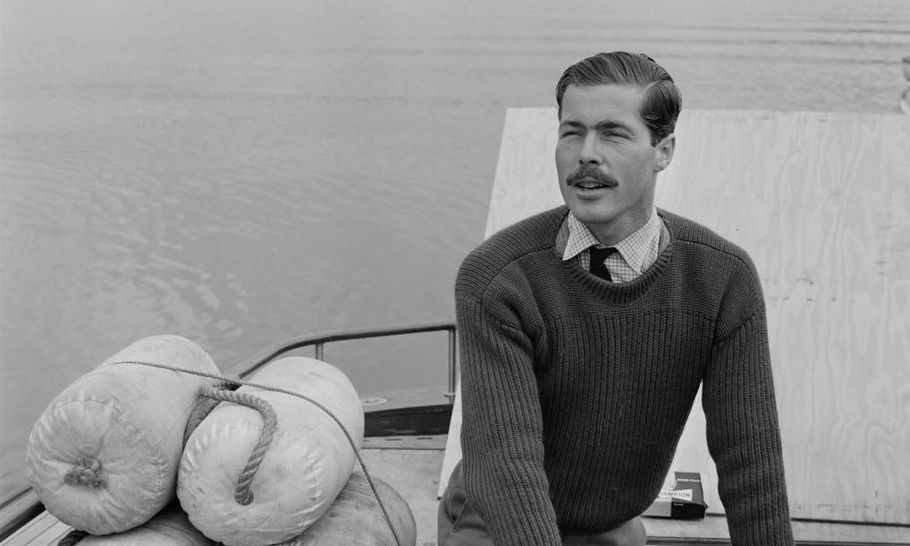The Price of Everything — wages and living expenses

Lucan Lucan 1963. (McCabe/Daily Express/Hulton Archive/Getty Images)
No. 3 Wages and Expenses
In 1885 a magazine article outlines the expenses of a London man about town: “A man may find a bedroom in one of the streets off the Strand for 8/- [£194] a week. When he arrives he pays 1/- [£24] for a glass of brandy, pays 2/- [£48] for his bed, and gives the chambermaid 6d [£12] to make it up.”
“He breakfasts next morning on coffee and egg for 1/6d [£36], gives the waiter 6d [£12] for serving him, and gets his boots cleaned for 3d [£6]. In Town, he should find unfurnished lodgings to the west of Tottenham Court Road. Begin west of Berners Street, and you should soon get two rooms for 5/- [£120] a week on the second floor. Have them cleaned and furnish them yourself. Beyond Westminster Bridge get your bedding and feather mattress. Buy also chairs and a plain table, pillows, washstand etc, £4 [£1,950]. A chest of drawers £1 [£487]. The earthenware wash basin etc, should cost 5/- [£122].”
“On £100 [£49,000] you could live for a year, but beware of visiting. For exercise, a walk before breakfast costs nothing and will give you an appetite. At several places you may dine for 1/- [£24] and give the waiter 1d [£2], taking meat and vegetables and a half-pint of stout; apple pie and cheese is 5d [£10] extra. At Garrick’s Head in Bow Street table d’hote is 2/- [£50] and served at 5pm. At a coffee house you may dine for 2/6d [£62.50] and there is also a Cigar Divan in the Strand or in Regent Street where you may lounge in the evening and have admirable coffee, a cigar and a newspaper to read in a splendid well warmed room for 1/- [£24].”
In 1911 The Fabian Women’s Group investigated the lives of the poor in Lambeth, south London and recorded their weekly budgets. One example:
“Mr S., scene-shifter. Wage 24s [£460]. Six children alive. Rent (two very bad rooms, ground-floor) 5s. [£96] Burial insurance 2s. [£38] half-hundredweight of coal 8d [£10.80]. Wood 2d [£3.20]. Gas 6d [£9.50]. Mr S’s bus fares 1s [£19]. Newspaper 2d [£3.20]. Soap, soda, etc 5 1/2d [£8.80]. Boracic ointment 2d [£3.20]. Gold-beater’s skin 1d [£1.60]. Collar 3d [£4.80]. Pair of socks 4 1/2d [£7.20]. Boy’s suit (made at home) 1s 2d [£22.20]. Total 12s [£230]. Left for food 10s [£192].
In 1912 the 45-year-old author Arnold Bennett, on 31st December, writes in his journal, as he often did, a summary of his writing and financial year. “A material year. Largely occupied with intestinal failure and worldly success. All my five later plays have been performed this year. About 1,155 performances altogether. I received (less agents’ commissions) about £16,000 [£6m] during the year, which may be called success by any worldly-minded author. It’s apparently about as much as I have earned during all the previous part of my life. And I bought a car and a yacht, and arranged to buy a house.”
In January, 1930, Virginia Woolf writes in her diary: “When we make up our six months accounts, we found I had made about £3,020 [£526,000] last year – the salary of a civil servant; a surprise to me, who was content with £200 [£35,000] for so many years. But I shall drop very heavily, I think. The Waves won’t sell more than 2,000 copies.”
In 1964 Lord Lucan, aged 19, wins £20,000 [£766,000] at a game of chemin de fer and acquires the nickname Lucky. The next day he hands in his notice at the merchant bank where he had been working and becomes a professional gambler. The previous year his father had died and he had become the 7th Earl of Lucan with a private income of £12,000 [£460,000] a year “sufficent to stake him as a gambler but insufficient to support heavy losses”.
In 1987 the Conservative MP Alan Clark writes in his diary: “Christmas Eve. I’ve got £700,000 [£2.325m] in my Abbey National Crazy-High-Interest account. But what’s the use: Ash, ash, all is ash. Lay not up for thyself treasures on earth. The cars are all getting streaked and rust-spotted, the books foxed, the furniture dusty. The window panes [at the family home, Saltwood Castle in Kent], all 52,000 of them are revolting, so greasily blotched. Translucent only. And there is moth everywhere. The whole thing is out of control.”
“And why? I know why. Because I’m not rich enough to have servants. We have to do everything ourselves, and we just haven’t got the time, and things get neglected. This morning, rummaging in the archive room I found the old Wages Book for 1960. That was the year James was born, and we bought our first new car, a dear little red Mini. It was the cheapo model with cloth seats, and we saved a further three pounds and ten shillings [£174] by hand-painting the registration numbers ourselves. Total cost ‘on the road’ was £460 [£23,000]. The total wages bill, per week, for the seven servants who worked at the Castle was thirty-two pounds and five shillings [£1,600]. MacTaggart, a clumsy fellow who had such ugly hands that my mother always made him wear white gloves when he was waiting at table got £12 per week [£595] and occupancy of The Lodge. I’m bust, virtually.”
Note on values: If one asks what a monetary value in the past is “worth” today, there is no one correct answer. A sum of money in the past would have been valued in different ways by different people and under different contexts. Here the intention is to find out how “affordable” items would seem to the average person of the time, so figures are converted using the average earnings index provided by the Office of National Statistics.




